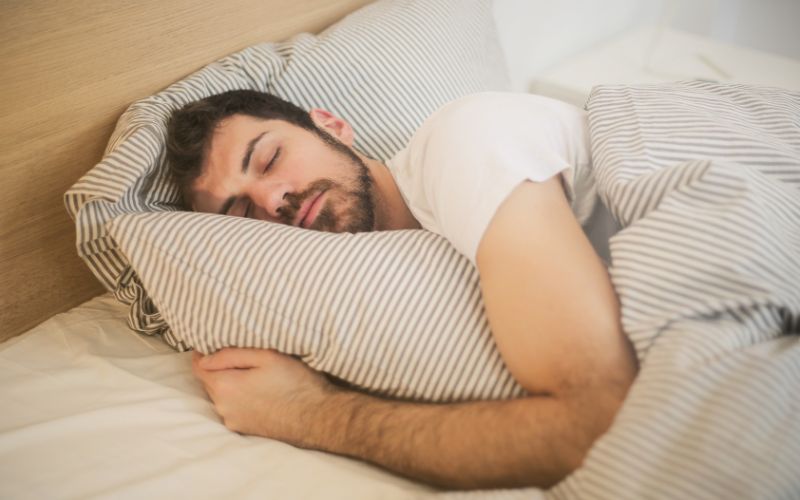A New Zealand study published in the journal Translational Psychiatry found that participants who took small amounts of LSD slept longer the night after microdosing than those who took a placebo.
The Phase 1 study involved 80 healthy male volunteers, 40 of whom were randomized into the LSD group and 40 whom were in the placebo group. The volunteers received a six-week course of either LSD – 10 micrograms of MindBio’s MB22001 – or a placebo, with doses self-administered every third day.
“Data from 3,231 nights of sleep showed that on the night after microdosing, participants in the LSD group slept an extra 24.3 [minutes] per night” compared to the placebo, “with no reductions of sleep observed on the dosing day itself,” the authors explain. “There were no differences in the ratio of time spent in each sleep stage, nor were there detectable differences in the physical activity of participants between the groups or evidence of tolerance/sensitization.”
Of the 80 volunteers who started the trial, five did not complete the study protocol. Four were excused from the trial due to adverse effects (mild anxiety), and one for reasons unrelated to the trial, according to the study’s authors.
The team of researchers conclude that the study’s results provide “a strong justification to incorporate wearable devices for sleep monitoring in our Phase 2 trials of LSD microdosing in patients with major depressive disorder, which are currently underway.”
“More generally, the observation that participants who microdose may require extra sleep the following night suggest that taking ‘off‘ days between microdosing days is important to allow the brain and body to recover between microdoses,” they add.
The team of researchers included Suresh Muthukumaraswamy, an associate professor of psychopharmacology in the faculty of Medical and Health Sciences at the University of Auckland, who is collaborating with MindBio Therapeutics.
MindBio hailed the research as “transformative for the treatment of depressive disorders because of the importance of sleep for maintaining good physical and mental well-being.”
“We now know that MB22001 has a range of benefits for improving mood, energy [and] sleep and reducing depressive symptoms in patients suffering from depression,” the company declared in a news release.
MindBio’s publicly stated thesis is that small, sub-hallucinogenic doses of MB22001 is the most scalable way to use a psychedelic medicine to treat depressive disorders globally. The company said it has two Phase 2 clinical trials underway and new trials in development.
MindBio CEO Justin Hanka added: “Microdosing MB22001 is a disruptive treatment methodology that we know improves sleep, depression and mood and our ambition is to develop this treatment globally at scale for affordable access to patients without the limitations and side-effects of common anti-depressants.”

